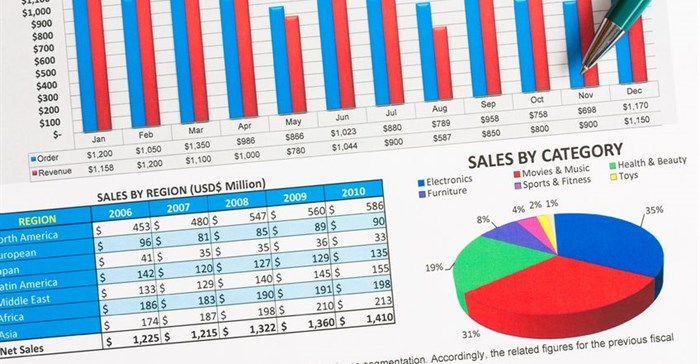Stimulating category growth in Africa

It is vital that strategic category planning must be part of the manufacturers overall strategy - an integrated business strategy is essential. In addition, retailers and manufacturers must collaborate together to propose meaningful growth opportunities and focus on a category-driven platform, not a transactional one based purely on price.
Yet with the proliferation of trends and increased competition across all categories, it is not easy knowing which trends will provide true category growth for both parties.
Some macro trends that currently have an impact on categories globally are health, sustainability, and the ageing population. The concern for healthier products mainly centres on the 'organic movement', which is ultimately a desire for consumers for healthier more natural products; this also includes increasingly vegetarian consumers. The second trend is sustainability and the concern around packaging, safer formulations and protecting the environment. The third is ageing population dynamics, mainly in Europe; with the population getting older from a macro trend point of view it massively affects different categories and what outlets offer.
Key trends to watch out for in Africa:
- Population dynamics - There is a number of macro trends influencing the continent, the biggest being the overall population growth, which is projected to hit 2 billion by 2050. Within this growth we are seeing a surge in youths, an emerging middle class, and increased urbanisation;
- Discerning buyers - Consumers are becoming more discerning about what they buy, they have more information readily available at their fingertips and now make more informed decisions;
- Local relevance - There is increasing concern in Africa for products that are more relevant and made locally;
- Convenience - The need for convenience such as ready-made meals; quick snacks etc, will continue to be a key trend in the upper middle class for many years to come;
- Technology impact and the Zero Moment of Truth - Connectivity is a huge trend having an impact on Africa, (word of mouth and sharing in particular). There are now four moments of truth affecting the consumer's purchasing behaviour.
- The age of the internet has birthed what we now call the zero moment of truth, which was coined by Google. At this point consumers make a potential purchase choice based on information online that they gathered through advertising, communication or a Google search - even before entering the store.
- The first moment of truth is when consumers are in store and make the decision to purchase a product there and then.
- The second moment of truth is when consumers use the product (trial) and either like it or they don't.
- The third moment of truth is that after a consumer has purchased and used a product they become a fan of the product and start endorsing the product specifically through social media channels even though they may not necessarily continue using it.
Ascertaining which trends are relevant
Firstly, ascertaining which trends to focus on must involve alignment with the business strategy, strengths and USP of the retailer and manufacturer alike.
Secondly, for both retailers and manufacturers it is important to understand which macro trends are relevant to their target shoppers in specific outlets and to find out if they are meaningful enough to capitalise on.
Remember that not all trends are going to be relevant to every outlet. Previously, when the health trend came along, everyone went healthy then the diabetic aisle was introduced, followed by the gluten-free aisle. It's not that type of trend that will give incremental benefit; it's about being clear with which trends you are going to align yourself with because you cannot embrace them all. This is especially true in the current market where there is no category growth and consumers are pressed for disposable income.
Effectiveness of category planning
There is a complex process to effective category management from analysing data, understanding trends, defining category drivers and shopper insights. While retailers understand ranging, planograms, pricing, strategy and how it has an impact on them, they don't have the time to get into detail with every category in their outlets. They need to leverage the expertise of manufacturers who have the capability to do proper category management and who are category driven.
Most manufacturers are driven by innovation pipelines, rationalisation and how to promote their products in the future. However, they need to look beyond their own brand/s and look at the category as a whole; they need to identify trends and decide if they want to play in those.
For effective category planning, where the industry can truly capitalise on relevant trends to drive growth, the manufacturer driving the category agenda needs to have some key skills. He needs to have the ability to convert trends into 'real' shopper insights and become more shopper-centric. He also needs to have a deep understanding of retailer strategies and key account managers need to be able to move the buying relationship from a transactional level to a value-added level or strategic level.
On the retailer side, the retailer category team needs to be able to convert available data into meaningful shopper insights. Many retailers have the data, but the current formats of the data makes interpretation difficult.
And, finally, the retail buyer's metrics need to be aligned to the category agenda, enabling the category growth to be truly realised.
About Sane Mdlalose
View my profile and articles...